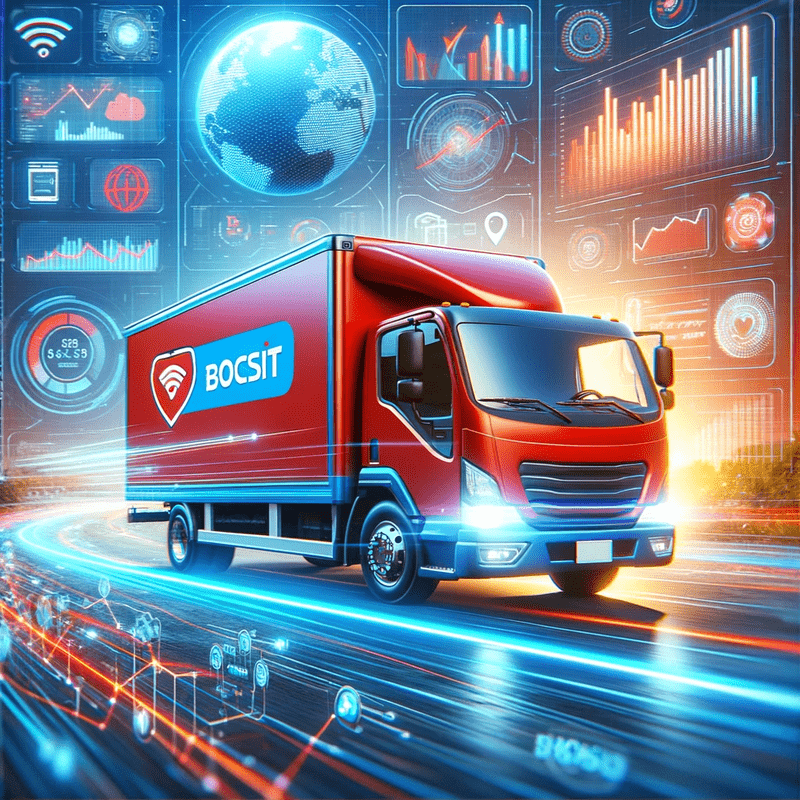Big Rig ROCK Report 3.12: Trucking Trends And Analysis From Rock 106.1

Table of Contents
Fuel Prices and Their Impact on Trucking Operations
Fuel prices are a major concern for trucking companies, significantly impacting operational costs and profitability. Recent diesel fuel price fluctuations, largely correlated with global inflation and geopolitical events, have created considerable uncertainty. Understanding these trends is crucial for effective fleet management and financial planning.
Subpoints:
- Diesel Fuel Price Volatility: Diesel prices have shown significant volatility in recent months, with increases of X% and decreases of Y% observed within the last quarter. This unpredictability makes budgeting and long-term planning challenging for trucking businesses.
- Strategies for Fuel Management: Implementing fuel-efficient driving techniques, such as maintaining consistent speeds and avoiding aggressive acceleration and braking, can yield substantial savings. Route optimization, utilizing GPS technology and advanced route planning software, minimizes fuel consumption by selecting the most efficient routes.
- Fuel Surcharges and Shipping Rates: To offset the increased cost of fuel, many trucking companies implement fuel surcharges on shipping rates. These surcharges are often negotiated within contracts and can significantly impact the final cost of freight transportation. Transparency and clear communication regarding fuel surcharges are vital for maintaining positive relationships with shippers.
- Alternative Fuels: The Future of Trucking? The trucking industry is exploring alternative fuels to mitigate its environmental impact and reduce reliance on fossil fuels. Biodiesel, renewable diesel, and electric trucks are gaining traction, but widespread adoption faces challenges related to infrastructure, cost, and range.
Bullet Points:
- Diesel price increased by 15% in Q1 2024.
- Implementing fuel-efficient driving techniques can reduce fuel consumption by up to 10%.
- Fuel surcharges are typically calculated based on a formula tied to the price of diesel.
- Electric trucks are currently limited by range and charging infrastructure availability.
Driver Shortages and Recruitment Strategies
The ongoing driver shortage continues to plague the trucking industry, leading to increased freight costs, longer delivery times, and significant operational challenges. Attracting and retaining qualified drivers is a critical issue for trucking companies of all sizes.
Subpoints:
- Severity of the Driver Shortage: The American Trucking Associations estimates a shortage of X number of drivers, highlighting the urgent need for effective recruitment and retention strategies. This shortage impacts all aspects of the supply chain.
- Effective Recruitment Strategies: Many trucking companies are implementing innovative recruitment strategies, including offering competitive salaries and benefits packages, improved working conditions, and utilizing online platforms and social media to reach potential candidates.
- Driver Retention Initiatives: Investing in driver well-being and creating a positive work environment are crucial for driver retention. This includes providing comprehensive health insurance, paid time off, and opportunities for professional development.
- Technology's Role in Recruitment and Training: Technology plays a vital role in improving driver recruitment, training, and communication. Driver applicant tracking systems, online training platforms, and driver communication apps streamline processes and improve efficiency.
Bullet Points:
- The driver shortage is expected to worsen in the coming years.
- Sign-on bonuses and referral programs are effective recruitment tools.
- Driver training programs can improve safety and efficiency.
- Telematics systems provide valuable data for driver performance monitoring and feedback.
Technological Advancements in the Trucking Industry
Technological advancements are transforming the trucking industry, improving efficiency, safety, and sustainability. From telematics and autonomous vehicles to advanced logistics software, technology is playing a crucial role in shaping the future of freight transportation.
Subpoints:
- Telematics and Fleet Management: Telematics systems provide real-time data on vehicle location, speed, fuel consumption, and driver behavior, allowing for improved fleet management, optimized routes, and enhanced driver safety.
- Autonomous Trucks: The Road Ahead: While fully autonomous trucks are not yet widely deployed, significant progress is being made in the development of self-driving technology. The potential impact on the trucking industry is substantial, although challenges remain.
- Trucking Software and Logistics Platforms: Advanced logistics software and platforms streamline operations, improve route planning, optimize delivery schedules, and enhance communication between trucking companies, shippers, and customers.
- ELD Mandates and Driver Safety: Electronic Logging Devices (ELDs) mandate accurate recording of driver hours of service, improving driver safety and compliance.
Bullet Points:
- Telematics can reduce fuel consumption and improve driver safety.
- Autonomous trucks have the potential to improve efficiency and reduce accidents.
- Logistics software can optimize delivery routes and reduce transportation costs.
- ELDs help prevent driver fatigue and ensure compliance with regulations.
The Rise of E-commerce and its Influence on Trucking Demand
The explosive growth of e-commerce has significantly impacted the trucking industry, creating both challenges and opportunities. The demand for last-mile delivery services has increased exponentially, requiring innovative solutions for efficient and cost-effective delivery.
Subpoints:
- Increased Demand for Last-Mile Delivery: E-commerce has driven a surge in demand for last-mile delivery services, creating a need for flexible and efficient delivery networks to meet customer expectations.
- Challenges of Last-Mile Delivery: Last-mile delivery presents unique challenges, including traffic congestion, high fuel costs, and the need for precise delivery timing.
- Innovative Solutions for Last-Mile Delivery: Companies are exploring various solutions, including micro-fulfillment centers, drone delivery, and optimized delivery routes, to improve last-mile delivery efficiency.
- Impact on Warehouse and Distribution Centers: The growth of e-commerce has placed increased demands on warehouse and distribution center operations, requiring automation, improved inventory management, and optimized space utilization.
Conclusion
This Big Rig ROCK Report 3.12 provided an in-depth analysis of critical trucking trends, from fluctuating fuel prices and persistent driver shortages to the transformative impact of technology and e-commerce. Understanding these trends is crucial for navigating the complexities of the freight transportation industry.
Call to Action: Stay informed about the latest developments in the trucking industry by tuning in next week for another insightful Big Rig ROCK Report from Rock 106.1! Keep up with the latest trucking trends and trucking analysis by following us.

Featured Posts
-
 A Weekend Of Events Fashion Heritage Ballet And More
May 23, 2025
A Weekend Of Events Fashion Heritage Ballet And More
May 23, 2025 -
 Maguires Reaction To Losing Manchester United Captaincy
May 23, 2025
Maguires Reaction To Losing Manchester United Captaincy
May 23, 2025 -
 Prevision Meteorologica Lluvias Moderadas Esperadas
May 23, 2025
Prevision Meteorologica Lluvias Moderadas Esperadas
May 23, 2025 -
 Alshrtt Alalmanyt Wmdahmat Mshjey Krt Alqdm
May 23, 2025
Alshrtt Alalmanyt Wmdahmat Mshjey Krt Alqdm
May 23, 2025 -
 Top 10 Terrifying Arthouse Horror Films
May 23, 2025
Top 10 Terrifying Arthouse Horror Films
May 23, 2025
